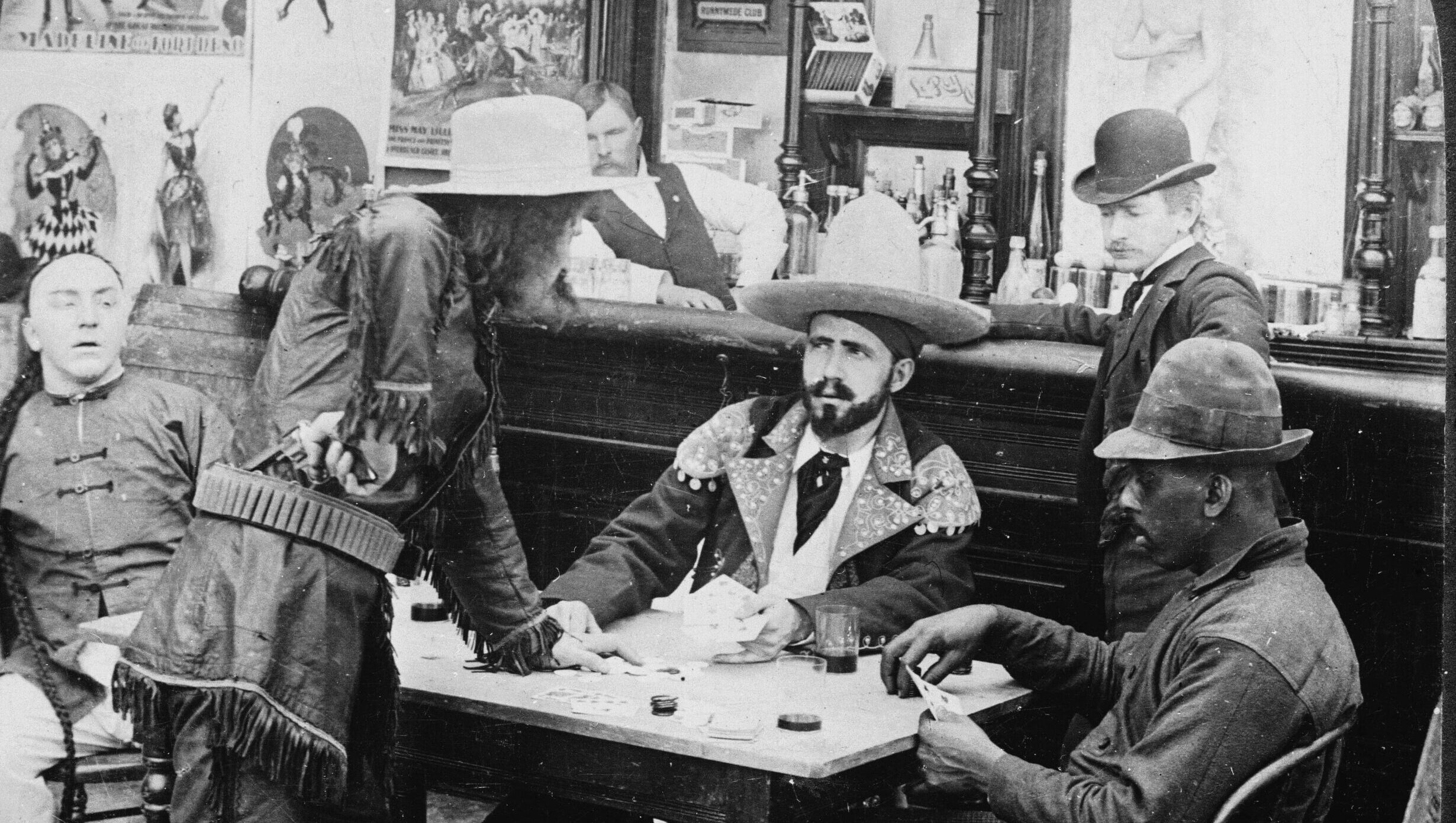When we speak of challenges, I think we mean both threat and opportunity—or, as Mr. Nehru puts it, peril and adventure. Several years ago, our company, American Motors, became keenly aware that challenge was a two-edged sword. One edge meant extinction, the other offered unusual success. Fortunately, we were able to muster the will to accept the challenge and meet it.
It appears now that the Sixties may present exactly the same sort of challenge to the American people: to fulfill further the ideal of freedom and human brotherhood for which I believe we are destined, or to fail as we sit indifferently comfortable. I think that in all the great adventures of life we face the possibility of failure as well as success; if we do not, we are taking life too easily and avoiding the issues.
In his recent fine novel, Advise and Consent, Allen Drury has the Senate leader Bob Munson say this:
The whole story of the operation of the American government is the story of the deliberate diffusion of power; the whole story of the life of the American government is the story between the deliberate diffusion of power, which in and of itself is perhaps the most brilliant device for the protection of liberty ever conceived by free men, and the deliberate concentration of power which free men have often deemed necessary to preserve liberty. . . . If either diffusion or concentration were to win the battle once and for all, then I think freedom would finally be gone and the great dream of liberty within discipline which is America would be gone forever.
At only one or two times during our history have we been in danger of losing freedom through too great diffusion of power. Certainly, this was true under the Articles of the Confederation, before the Founders were able to provide us with a “more perfect union” under the Constitution. Perhaps also a too great weakening of the central authority was threatened by the tariff controversies of the 1830s and by the slavery extension quarrels of the 1850s. What is manifestly evident, however, is that during this century, and especially during the last decades, concentration of power, rather than its diffusion, has become the great danger.
We face the early prospect, it seems to me, of concentration winning once and for all. As a people generally we seem little concerned. Even more disturbing, our leadership seems hardly concerned at all. How is it that our forebears were so sensitive to power, and we have grown so forgetful? If you will read the record of the Constitutional Convention, you will find that the problem of the concentration of power was the heart of the discussion.
I think these are some of the reasons why we have grown so indifferent to the question of power:
First: The material abundance produced by freedom has caused us to confuse bigness and power. Bigness and its benefits are cited as justification of what has become excess power in too many instances. All you have to do today is to criticize this power problem and somebody says: “Yes, but we have to have bigness to have efficiency.”
Second: There is the theory of countervailing power—that one big power group offsets another. This is the “balance of power” theory. It has always failed. And today the balancing of excess industry power with excess union power is threatening us with permanent concentration of excess government power.
Third: The complexity and magnitude of our present problems create individual confusion, uncertainty, and irresponsibility. Because all progress starts with the capacity of individuals, this situation must be corrected through citizens informing themselves and leaders helping citizens to inform themselves so that, in exercising their responsibility, citizens can see to it that concentration does not win be default.
Fourth: Indifference and apathy have resulted simply from our extraordinary abundance and superficial security. Most civilizations have expired on the bed of luxury. America has a great opportunity to create a great new age by resisting this historical temptation.
Is anything plainer in history than the fact that concentrated power, whether it is “countervailing” power or not, always finds its expression sooner or later in domination? This is what our forefathers thought. In my judgment, we are face to face with the dangers oi such domination.
Excessive power on the part of industry required reforms that reduced that power and opened the door to greater power for unions. In the process, our laws became two-faced, banning monopoly power in the marketplace, but inducing it in collective bargaining. The last steel strike was a forceful illustration of the result. The powerful unions banded together. The steel industry massed itself. And there they stood—two massive antagonists, both far greater in their strength than some foes whose struggles have changed the course of civilization.
Must we wait for a whole series of national emergencies such as the steel strike to throttle us before we act? Isn’t it far wiser to tackle the causes of such emergencies before others arise? The discouraging thing to me is that no one of political consequence discusses how we can prevent such national emergencies, but only what we do when one occurs.
The essence of Americanism is to keep all power—private or public power—from reaching the point where it can create national emergencies. Yet there is no discussion of this to speak of in this country today.
Those who claim to believe in the collective-bargaining process and urge final government authority must fail to see that such a step in reality means the end of collective bargaining and the acceptance of collective bludgeoning, with a big club in the hands of a power-controlled government.
Instead of reasoned bargaining between parties having an intimate mutuality of interest, we must then inevitably bow to “bargaining” by force. The play will be to construct tremendous aggregations of strength, either to overpower the adversary or to be in power in case the power invoked by a national emergency is used by the government.
The real goal then is becoming perfectly obvious—control of Congress and the White House, and the battle between unions and business for that control.
This is statism. Both labor and management must recognize that the real issue is not labor versus management but the state against freedom. If we take the absolute-authority approach of more government control, we are accepting statism.
To prevent the replacement of competition by absolute authority, it is necessary to prohibit joint bargaining on the part of large employers in our basic industries, as well as joint bargaining on the part of unions representing the employees of large concerns.
Outside of the craft and service industries, we must bring collective bargaining back to the facts of the individual competing enterprise. That is where the mutual interest of labor, management, and capital is at its maximum, and that is where the limits of their power should be.
In a competitive economy power struggles such as we have seen in recent years are comparable to all the linemen on the football teams in the Big Ten Conference joining the linemen’s union, and all the backfield men joining the management association—deciding that their conflicting interests are more important than their mutual team interests. Such an arrangement would be no more fantastic than what we have in America as a result of labor laws premised on the principle of monopoly, which encourage collective bargaining on a monopolistic basis, and which embody the fatal principle of class conflict. What is needed is to break up these warring monopolistic powers and re-establish the area of mutual interest between labor and management, and between unions and capital, in this country.
One of factors that prevents needed action in the collective bargaining field is the public misconception that bigness is necessary for both unionism and industry in order to guarantee fairness of competition. There is, of course, some basis for union and public opinion that colossal industrial power necessitates colossal union power; but the truth of the matter is that neither power is justified. To permit, in the name of competition, the establishment of a union monopoly to offset a real or threatened management monopoly is confusion of the worst sort.
The splitting of a monopoly into two unnaturally opposed complexes does nothing to destroy the evil of the monopoly—as is clearly seen when the two opposing powers come to agreement at the expense of the public and the national economy. This is not the preservation of the competitive principle, but its reverse. I believe that our antitrust laws, which were enacted in our early stages of industrial development, need to be modernized and strengthened to cope with the new problems created by the embodiment into national law of false interpretations of the competitive principle.
This economy of ours is only about sixty years old. It is new. It is in its earliest stages of development. To think that we have perfected laws on our statute books to deal with the type of economy that has evolved is naive. I think we need to review those laws in terms of what we have today instead of what existed back in the last century and in the twenties and thirties.
There is a widespread belief today that the success of small firms in meeting the competition of large competitors is evidence of the continued virility and adequacy of our economic system. While it is reassuring to many to hear an interpretation of the success of smaller companies, I am too familiar with the realities of our present economic system to permit this interpretation to go unchallenged.
Unquestionably the survival of smaller companies shows that there is still competitive opportunity for smaller units even in an industry dominated by large firms. However, unless the competitive principle ceases to operate in our economy, there will certainly be corporate fatalities in the future. For a primary function of the competitive principle is to reward those who excel in meeting consumer preferences and to punish those who are less able to do so. After you have been at the bottom of the industrial league for a while, you are eliminated from the league by economic death. It is rougher than being at the bottom of a baseball league.
I believe that this function of the competitive principle is vital—absolutely vital—to the continuation of a vigorous economy. I believe that the penalty for competitive failure should be corporate death. And I am opposed to companies or individuals seeking to saddle the general public with the cost of their survival through special interest legation or administrative action.
Yet the history of several of our large basic industries indicates that the competitive principle must operate in such a way that its function of economic death is offset by a compensating function of economic birth—if we are to retain the minimum number of competing enterprises necessary for the vigorous competition that produces economic progress and preserves the public confidence in the competitive principle as the primary means of economic discipline.
Lack of such public confidence and discipline would end in the substitution of the only other possible form of discipline for an economy—absolute authority. There are only these two means of disciplining an economy—the principle of competition, in which the power is in the hands of people as consumers—or absolute authority, either in the government or in private cartels, or in a combination of those two patterns.
It is all very well to speak smugly of the virtues of competition and to assume that all you have to do is to applaud it and be in favor of it. If we believe in competition, we must give it more than lip service and actively seek to keep it vigorous and fight the forces that seek to restrain it.
I have made some specific proposals in this area. Under them, a company would be as large as the nature of the industry required for efficient competitive operation, and no arbitrary limit is suggested. The essence of the problem lies in determining the degree of economic control or power permissible in a competitive economy.
During the coming decade, I believe we will either meet the present challenges arising from our past progress by building a new and stronger foundation for economic freedom and well-being, or we will fail in this opportunity and cripple our future economic development by expanding the role of government.
In my judgment, there are three fundamental tasks which we must accomplish.
First, as I have just outlined, we must undertake a more complete development of the competitive principle as it applies to our industrial activity. I think this is necessary to maintain public confidence in competition as the primary means of consumer protection and national economic discipline.
Second, we must eliminate the present basic conflict between competition and monopoly in our national economic policy. I think that it is necessary to preserve collective bargaining, including the right of unions to strike. The exercise of union and employer power through the bargaining process must, however, be made subject to the competitive principle and therefore to the discipline of consumer decision, if collective bargaining is to remain free of government decision and control.
Third, we must develop a new and higher level of citizenship, reversing our growing tendency to participate in political and public affairs according to our organized economic interests. I think a further growth of union and business participation in politics would not only pervert our economic institutions into semi-political organizations, but also substitute as the basis for political action the economic determinism espoused by our enemies. The true basis of American government and society lies in the divine origin of our rights as citizens and our economic rights as workers, consumers, and owners.
I think if a nation wants anything more than freedom, it will lose its freedom, and if it is comfort and security that it wants, the irony of it is that it will lose them, too.
Our enemies have already done a pretty effective job of confusing the basic concepts and understanding of our principles of freedom. “In our country,’’ they say, “people have to sacrifice for the state. In your country, people are free to do whatever they please. Because in Russia we have to sacrifice for the state, Communism is more idealistic than freedom.”
The facts are that we believe, because we are children of a Creator, we are obligated to obey the commandments of our Creator as we individually understand them. Because we are children of a divine Creator, we are brothers of all people regardless of race, origin, or creed. Because we have the obligations of brotherhood and as individuals have been given inalienable rights by our Creator, we have government with our consent as citizens. Therefore, government is what we have consented that it should be—national government, state government, local government. Thus, we have an obligation as citizens to obey our government. This is infinitely greater idealism than the idealism of sacrifice for the state.
I think we must rediscover these obligations. I think we need a spiritual and political recrudescence in America if we are going to keep this country from going down a road engineered by economic determinism. I believe that American citizens must recognize that their citizenship is more important than their economic or political affiliations and that they have an obligation to use their citizenship as children of God and as brothers of their fellowman, and not to use their citizenship as businessmen or as union leaders.
I see very little difference personally between the idea of Americans using their political power for economic ends and the Communist party doing substantially the same thing. I think if we can get back to the fundamentals, we can build a greater new age in America and realize our destiny.
I believe our national destiny is to free all men everywhere from bondage—from all forms of bondage—through example and persuasion and by helping them through brotherhood to help themselves.
George Romney was prolific businessman and politician who served as Michigan’s forty-third governor.















